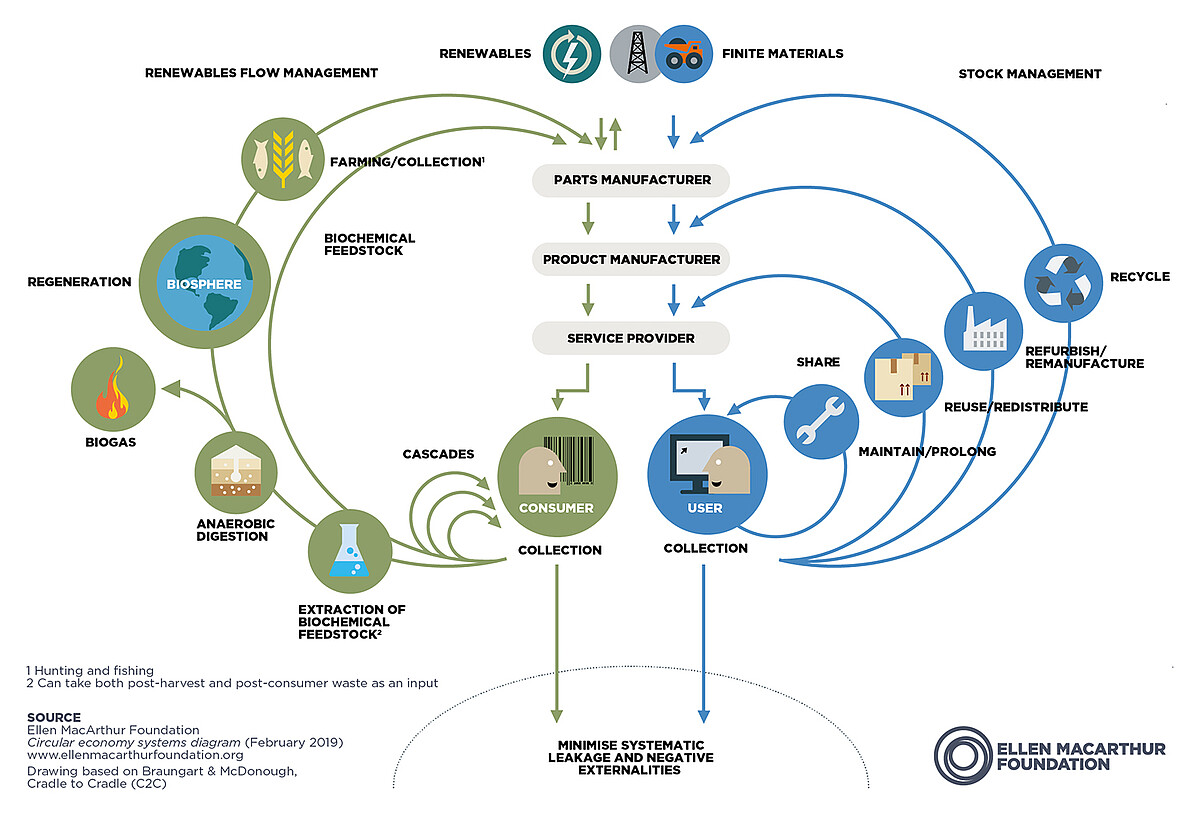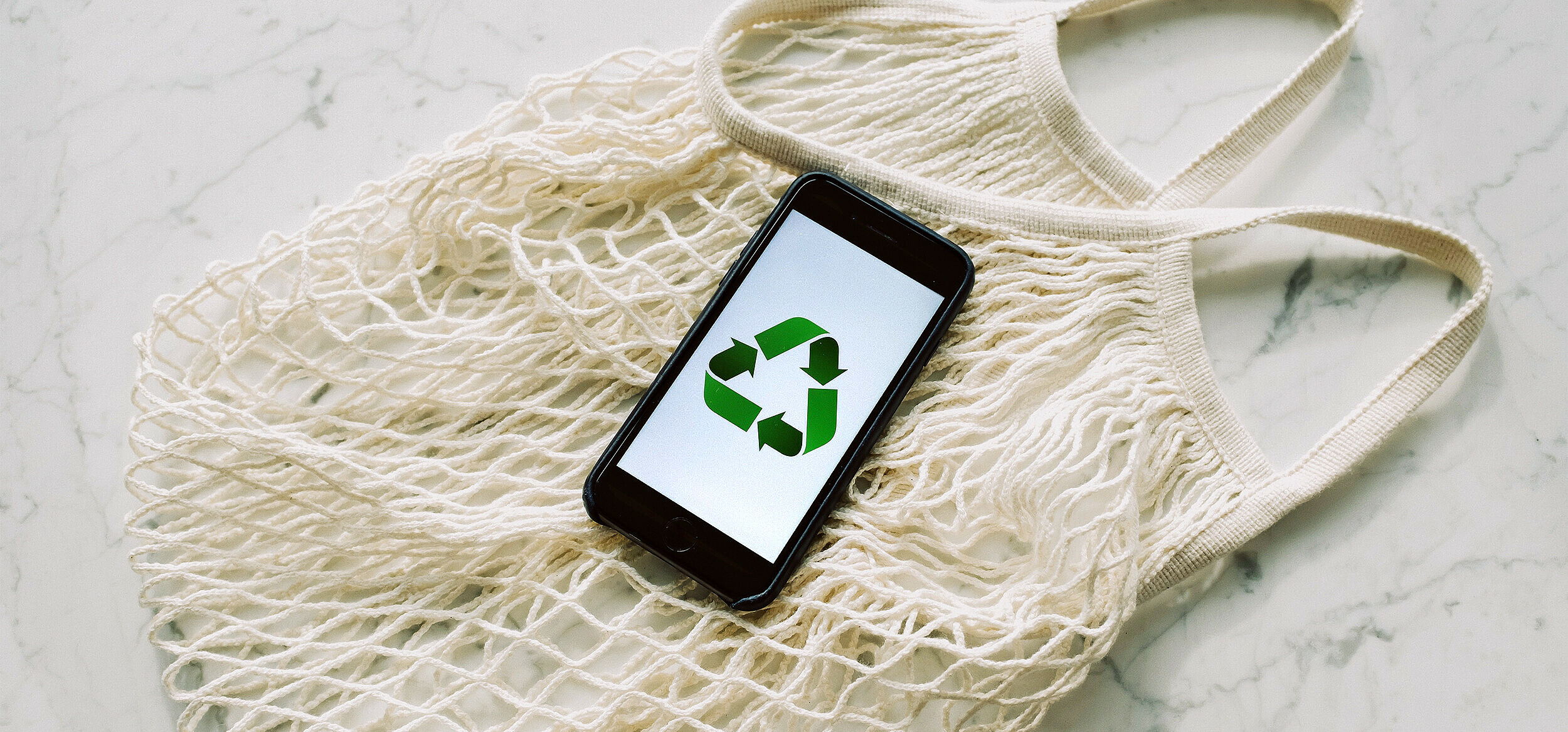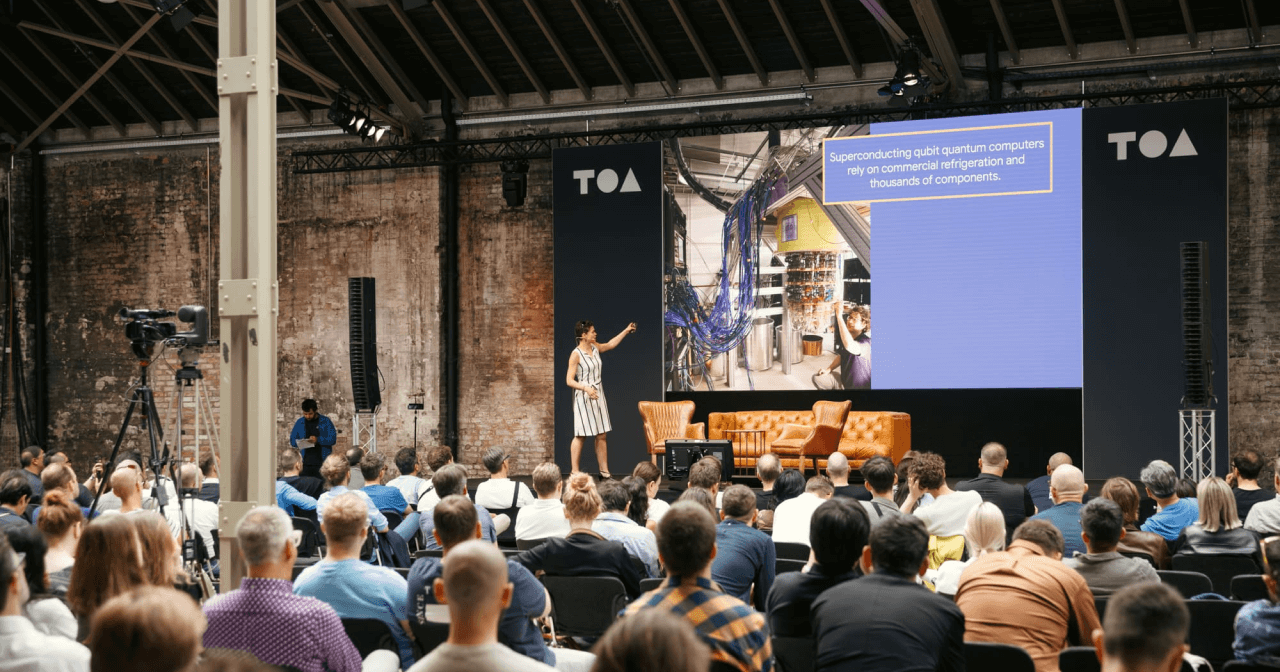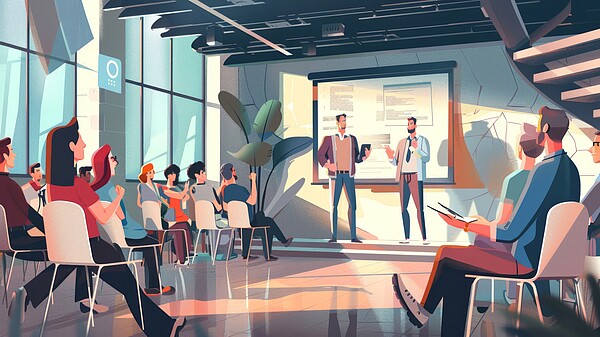What Goes Around, Comes Around
Berlin believes in the revamp of the traditional linear economy to the sustainable circular economy, and many actors are driving the change.
Recycling is of course a good idea. Yet it refers per se to individual items. We need to think big picture. Sustainability is the principle that will allow us to survive on this planet, net zero is what we must reach in order to do so. But how to achieve that within societal constraints? How do we reconcile social and environmental needs with business and the economy? A potential answer is to be found in a holistic approach to economic activity. And that is exactly what many committed people and companies in Berlin want to accomplish – they are building a circular economy (CE).
The premise behind the conventional ‘linear economy’ is based on extracting resources, converting them into products, using them, and disposing of them at the end of their life cycle. The two obvious problems with this model are finite natural resources, and what to do with the waste.
“The circular economy allows considerable potential for innovation, alternative business models, and cooperation beyond the traditional boundaries of economic activities.” Wolfgang Korek
With any business, it’s all about adding value – and value can be added to almost everything, including waste. For instance, low quality plastic garbage can be turned into petrol. Unlike the idea of a perpetuum mobile, which when it loses its power source simply ceases, the circular economy is as powerful as the activities that drive it. It encourages business to use and re-apply what is already there instead of digging out resources from the fragile Earth.
Furthermore, circular economy shifts business to regional cells rather than blanket globalization.
Beyond Sustainability – Durable, Repairable, and Reuseable at End of Life
The transition to and success of the circular economy depends on business, consumers, and politics being willing and able to work on it together. As Tim Janßen, managing board member of the Berlin NGO Cradle-to-Cradle, points out, reducing the harmful effects of our footprint, for example through sustainability or simply less consumption, is a good thing, but it still merely postpones the inevitable. What is required is a stronger change – for instance not just to climate neutral but to climate positive.
To maintain a business incentive, circular economy goods and products should include recycling principles right at the initial design stage – not only for the consumer but for the producer, for whom the recycling could potentially become reselling. So in ‘circular design’, what happens with a product at ‘end of life’ becomes an integral part of product development. Furthermore, to reduce costs, utilization of by-products can be integrated into production and re-use of transportation materials into logistics.
Circular economy is completely in line with the 17 interlinked Sustainable Development Goals (SDG) set up in 2015 by the United Nations General Assembly. The German federal government is working on the ‘National Circular Economy Strategy’, which is to coordinate policy concerning raw materials and sustainability, and is interconnected with climate goals.
Policy of this kind encourages business models such as Product-as-a-Service. Here, companies no longer generate profits by selling as many products as possible and thus depleting resources. Instead, profits are made by ensuring that the customer uses the product for as long as possible. Ronja Scholz from Circular.Berlin explains it in terms of need fulfillment vs ownership. “Instead, profits are made by providing services that cater to the needs of customers, for example 'reaching a destination' rather than 'driving a car'.” In this case, we speak of ‘Mobility-as-Service’.
Interestingly, this shifts the idea of the value of property, so fundamental in the historical development of the linear economy, because in Product-as-a-Service ownership of the product is not transferred to the consumer through a purchase transaction but remains with the provider. “Who will then be ensuring that the customer can use the product for as long as possible – the most sustainable and valuable usage of resources”, as Scholz puts it.
“Recycling is very well known. But the real trick of the CE is to make money from keeping products in use, repair and so on,” Scholz points out. Furthermore, it is about more than re-using waste. This is a good first step, but not yet the full idea of circular economy, which puts a price tag on waste since it has value. Upcycling businesses currently, “often rely on the fact that the resource is waste and therefore for free. What happens when these raw materials are sold rather than given for free, because many producers want to have the material?”
When everything becomes a resource, the concept of ‘waste’ can be discarded altogether. This integral concept of the circular economy is sometimes referred to as ‘design out waste’.

In times of skyrocketing energy costs, global supply chain problems, and the growing importance of security policies, the circular economy shows its worth, including reduced dependency on raw material suppliers and greater resilience to price fluctuations.
This is the Pre-Boom Time to Invest in Circular Economy
While the circular economy idea is still young, it provides a huge playing field for innovative business ideas. And the more players enter the field, the greater the potential.
Examples of circular business models in Berlin are:
- the change agency in the fashion scene circular.fashion
- building material that traps CO2 Carbon Instead
- diaper cycle DYCLE
- recycled coffee grounds Kaffeeform
- Phone as a service Everphone
- ecoLocked, who want to become the market leader for carbon-negative building materials
Big companies like Zalando are also actively pursuing the new paradigm. Head of Circularity Laura Coppen says that “New business models such as recommerce, rentals and the recycling infrastructure are really starting to pick up” in the fashion industry, and adds, “You can’t bring circularity to life with one business model on its own, it needs to be holistic.”
“The circular economy concept creates a bridge between environmental protection and innovative, future-oriented business models that are attractive to investors.” Wolfgang Korek
Recycling management alone counts over 400 companies and 8,500 employees in Berlin. Key locations such as the CleanTech Business Park Marzahn Hellersdorf and Berlin TXL – The Urban Tech Republic in Tegel provide ideal conditions for the emerging industries of the circular economy to set up and thrive.
For the scientific perspective, the Fraunhofer Institute for Production Systems and Design Technology as well as the Faculty of Process Sciences of TU Berlin are at the forefront of interdisciplinary research into the Circular economy and recycling technology.
Fraunhofer also provides entrepreneurs with this CE design kit.
In September 2022 the first international event for zero waste, circularity and sustainability will take place in Berlin, Zero Waste Berlin Festival.
Berlin is one of the four partner cities of the circular city challenge, which calls for solutions to four challenge areas: resource management, digital technologies, system infrastructure, and consumption & awareness. Two of this year’s eight winners are from Berlin, including the 25 year old catering company Floris.
Other prominent actors driving the circular economy in Berlin include the following organizations and institutions:
- The non-profit Circular.Berlin is a group of strategists, researchers, designers, and practitioners seeking to develop the circular economy in Berlin through knowledge building, practical programs, community development, and education.
- The NGO Cradle-to-Cradle has a powerful vision of tomorrow’s society and demands and promotes an intact world by bringing together business, science, education, politics, culture, and civil society.
- The Circular Together Impact Hub Berlin is a tech incubator for entrepreneurs with a concerted six-month program based on collaboration as the core principle.
- The zero waste initiative SenUMVK: Re-Use Berlin by the Berlin Senate Department for the Environment, Urban Mobility, Consumer Protection and Climate Action includes sector-based competitions for the best ideas.
- ProjectTogether is the German-wide Circular Futures innovation program which initiatives that “rethink, reduce, reuse, recover and recycle” can apply for.
- BDI Circular Economy is the Federation of German Industry’s network initiative concerned with the circular economy.
The interactive industry map shows the circular economy infrastructure in Berlin – choose between 2D and 3D view.
Berlin investors are catching on. Mother Earth Ventures have been actively supporting startups contributing to, for instance, sustainable manufacturing or renewable energies. AENU calls its investment strategy ‘Impact Capitalism’. Planet A Ventures is an investment company targeting startups that have a measurable positive impact.
Since humanity’s resource consumption far exceeds the Earth’s capacity to regenerate those resources, the necessity for a new economic model is glaringly obvious. The circular economy doesn't only save resources, it has the ability to fundamentally transform the way our economy creates value. As the economic development agency of the city of Berlin, Berlin Partner has recognised the potential of the circular economy as a viable solution. SMEs interested in receiving help applying the circular economy approach, including assistance with funding schemes, should contact Head of Unit Wolfgang Korek.
Text: Olaf Bryan Wielk, ideenmanufaktur
Header image: © Berlin Partner/eventfotografen.berlin






